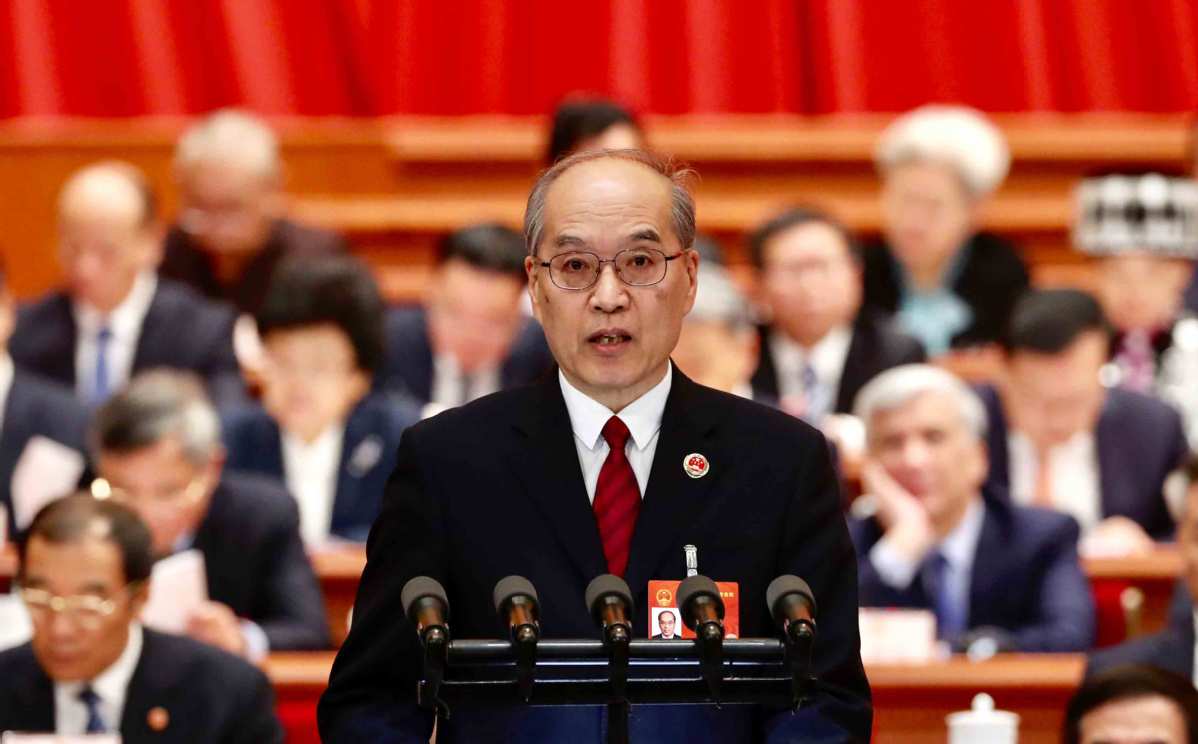Most public interest cases resolved early


The majority of public interest litigation contemplated by procuratorates is resolved during pretrial proceedings, before any court hearing, Zhang Jun, head of the Supreme People's Procuratorate, said on Tuesday.
The country's top prosecuting body has been actively exploring how to better handle public interest litigation since it was given the role in 2017.
Last year, prosecutors nationwide handled about 113,000 public interest cases. Of those, some 59,000 (52 percent) involved environmental protection and natural resources. About 41,000 (36 percent) involved food and drug safety, Zhang said in the work report of the top procuratorate delivered during the ongoing session of the 13th National People's Congress.
About 103,000 of the public interest cases last year were resolved through a type of pretrial proceeding, Zhang said. Such proceedings allow prosecutors to urge government departments, in cases where they are defendants, to correct their mistakes before further legal action is taken.
"Procuratorial organs will try to solve such cases in the pretrial proceedings and protect the public interest in a timely manner," Zhang said, adding that such proceedings produce the best social effect with the least judicial cost.
"If the suggestions provided by prosecutors cannot be effectively implemented in the pretrial proceedings, the cases will go to the courtroom," he said, adding that last year prosecutors brought about 3,200 public interest lawsuits to courts, about 1,500 of which resulted in judgments.
Zhang outlined a typical case in his report. In the Laixi River area in Chongqing's Rongchang district, where animal raising is prohibited, 286 farmers broke the ban and directly discharged livestock excrement and wastewater into the river.
In October 2017, district prosecutors issued suggestions to the government agencies involved, urging them to perform their environmental supervision duties. When the prosecutors found the problem continuing in Guchang, they brought an administrative public interest lawsuit against the town government.
The court found that the town had been negligent in fulfilling its regulatory duties and ordered it to control the pollution.
Zhang said procurators always call for restoration of the environment in such cases.
Last year, through public interest litigation, 140,000 hectares of contaminated farmland, wetland, woods and grassland were restored, and 20 million tons of solid waste and household garbage were cleaned up, he said.
Last year, 400 tons of substandard food products and about 9,600 kilograms of fake and smuggled drugs were seized. Offenders were ordered to pay 3 billion yuan ($447 million) for ecological restoration and environmental protection, he said.
Enacting new measures to supervise governmental work, China began a two-year pilot program in July 2015 to allow procuratorates to file lawsuits in the public interest, and in June 2017 the procuratorial system for public interest litigation was formally established.
In February last year, the SPP signed a memorandum of understanding with ClientEarth to strengthen exchanges and cooperation on the training of environmental prosecutors through international seminars.
The country's practices in public interest litigation have drawn global attention. This month, ClientEarth, a nonprofit environmental law organization in Europe, published an article on its website explaining China's practices in environmental public interest litigation.
The organization is making efforts to share China's experience with related European organizations and will translate typical cases into English and enter them into a database of the United Nations Environment Programme, the SPP said.
(China Daily 03/13/2019 page3)




































